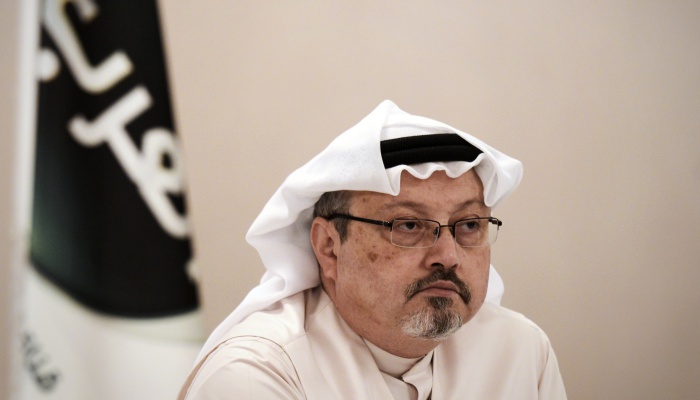A Turkish public prosecutor said on Wednesday that Saudi journalist Jamal Khashoggi was strangled and dismembered upon arrival at the Saudi Consulate General in İstanbul earlier this month as part of “advance plans” to kill the prominent Saudi journalist and dispose of his body, The Washington Post reported.
The statement, delivered as Saudi Arabia’s own prosecutor left Istanbul for Riyadh, appeared to mark the most conclusive official description to date of what happened to the prominent journalist and Washington Post contributing columnist when he entered the diplomatic mission on Oct. 2.
“In accordance with plans made in advance, the victim, Jamal Khashoggi, was choked to death immediately after entering the Consulate General of Saudi Arabia in Istanbul on October 2,” İstanbul Chief Public Prosecutor İrfan Fidan said in the statement, according to an official translation. “The victim’s body was dismembered and destroyed following his death by suffocation — again, in line with advance plans.”
Turkish media reported that Saud al-Mojeb, Saudi Arabia’s top prosecutor, had left for an İstanbul airport following two days of meetings with his Turkish counterpart and representatives of Turkey’s National Intelligence Organization (MİT). A senior Turkish official said Mojeb did not provide Fidan with the location of Khashoggi’s body or the identity of a “local collaborator” who Saudi authorities have asserted helped dispose of the journalist’s remains.
Since the prosecutor arrived in Turkey on Monday, “Saudi officials seemed primarily interested in finding out what evidence the Turkish authorities had against the perpetrators” in Khashoggi’s killing, said the official, who requested anonymity to discuss private law enforcement contacts.
“We did not get the impression that they were keen on genuinely cooperating with the investigation,” the official said of the Saudi delegation.
Mojeb’s visit came just days after Saudi Crown Prince Mohammed bin Salman hailed the “unique” cooperation between Turkey and Saudi Arabia in the investigation into the killing of Khashoggi, who was last seen entering the Saudi Consulate General in İstanbul on Oct. 2.
Turkey says members of a 15-man hit team, dispatched from Saudi Arabia, killed Khashoggi inside the consulate. Turkish investigators have not publicly released a key piece of evidence in the case — an audio recording of what occurred inside.
Saudi Arabia has provided shifting explanations about what happened to Khashoggi, a contributor to The Washington Post who had written opinion columns criticizing Mohammed. Saudi authorities have acknowledged that Khashoggi was killed in the consulate but blamed the murder on agents acting outside the state’s authority.
Turkish officials, including President Recep Tayyip Erdoğan, have repeatedly complained that Saudi Arabia is hampering the investigation by refusing to provide critical pieces of information, including the location of Khashoggi’s body. Turkey has also requested the extradition of 18 suspects who the Saudi government says have been arrested in Saudi Arabia in connection with the case.
Saudi Foreign Minister Adel al-Jubeir said the suspects would be tried in domestic courts.
The killing has unleashed a storm of criticism, causing Germany to suspend export licenses to the kingdom and placing US President Donald Trump in a quandary. In addition to being a major purchaser of American weapons, Saudi Arabia sits at the heart of the administration’s foreign policy in the Middle East.
Trump has said he is “not satisfied” with Saudi explanations of Khashoggi’s death. Defense Secretary Jim Mattis has warned that the crisis could affect regional stability. But there are few indications that Khashoggi’s death will fundamentally alter the relationship between the two nations.



